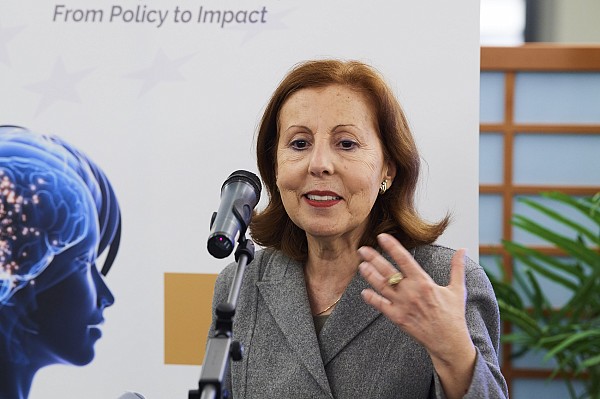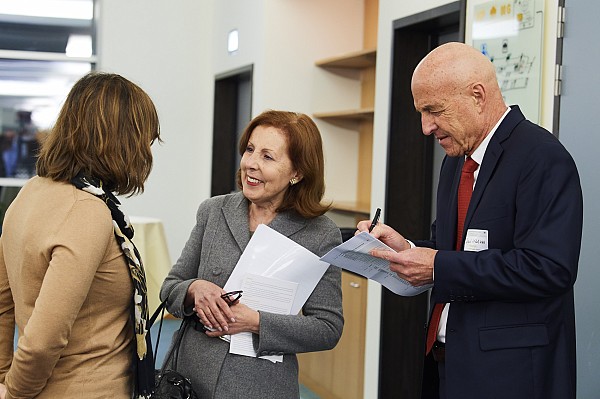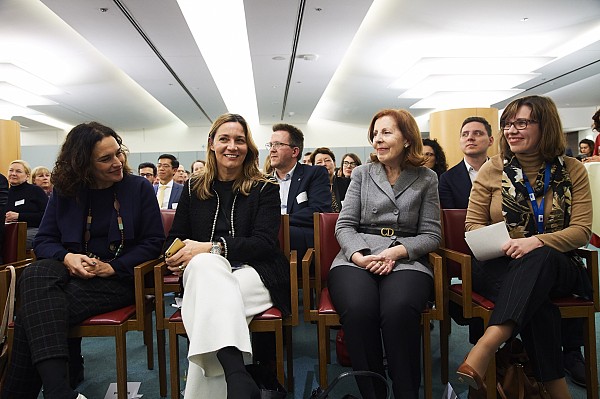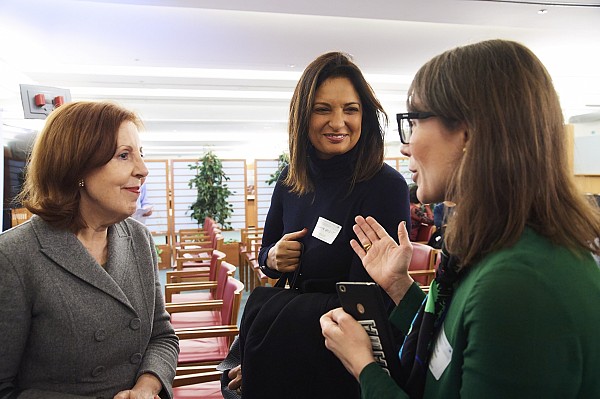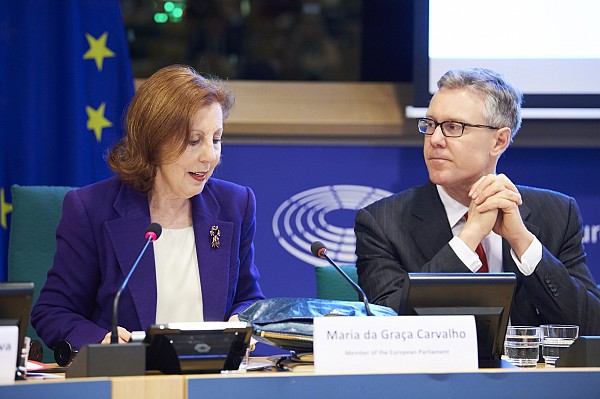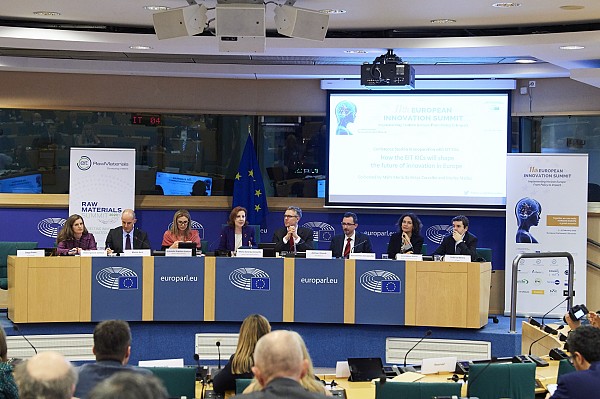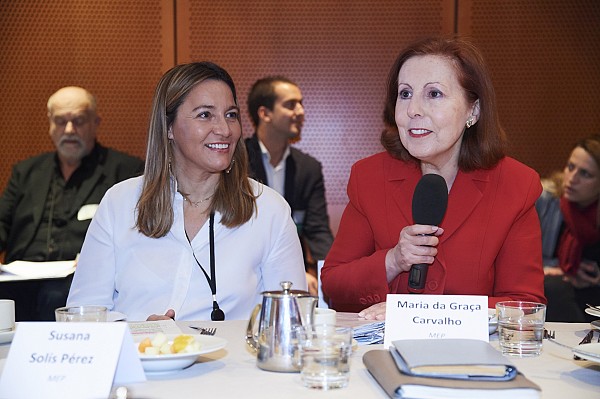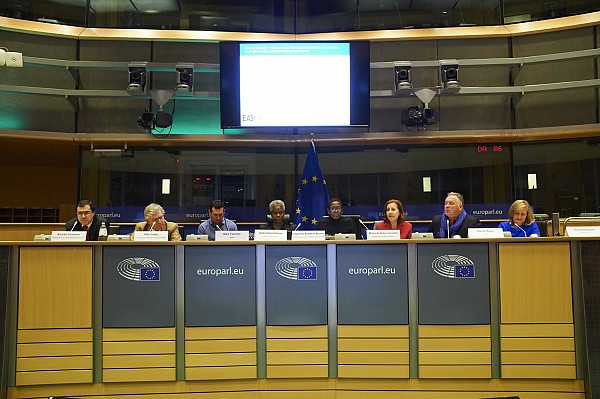Work in Parliament K4I organises the 11th European Innovation Summit
From 3 to 5 February, more than 400 innovation actors and policy makers gathered at the 11th edition of the European Innovation Summit in the European Parliament in Brussels to discuss remaining challenges during the final negotiation and adoption process of Horizon Europe, the role of the European Institute of Innovation & Technology (EIT) / Knowledge and Innovation Communities (KICs) in driving innovation across Europe as well as a number of more specific topics.
As K4I Forum Chair, Maria da Graça Carvalho welcomed the participants at the Opening Ceremony accompanied by statements of MEPs Susana Solís Pérez, Lina Gálvez Muñoz and Victor Negrescu, all of which are K4I political members. Alina-Stefania Ujupan, on behalf of Executive Vice-President for "A Europe fit for the Digital Age", Matgarethe Vestager, shared the vision of her Commissioner to focus on bridging the gap from innovation to implementation and society with the Summit attendees. Robbert Fisher, president of K4I, closed the session saying that Europe may well lag behind in certain domains, but is strong and leads in others, it should move out of the comfort zone of the underdog, and act and build on its strengths.
The next morning started with a conference session on "How the EIT KICs will Shape the Future on Innovation in Europe" setting out the EIT’s vision, key objectives and added value in the European innovation landscape in light of Horizon Europe and the Commission proposals for an "EIT Regulation and Strategic Innovation Agenda" currently under revision by the European Parliament. Maria da Graça Carvalho is responsible for the report “Strategic Agenda for Innovation of the EIT”.
Maria da Graça Carvalho further participated in a lunch debate done in cooperation with EURAMET, that focused on "The EU’s Energy transition and on how research and innovation is helping Europe to become the world’s first climate-neutral continent". In a parallel lunch debate, industry experts and researchers exchanged viewpoints on "Building Synthetic Cells in Europe – Understanding Life and Mimicking Cell Mechanisms for a Revolution in Green Technology" in a discussion organised in cooperation with TU Delft.
The afternoon sessions included "Shift2Rail, Shift2Green" focsing on the plans of the European rail sector to play a key role in implementing the Commission’s Green Deal ambitions and how the Joint Undertakings S2R and FCH drive innovations that deliver the needed solutions; "Digital Transformation: Economics, Sovereignty, Security" organised in cooperation with Photonics21 that debated in which technological areas and why we need to keep or achieve digital sovereignty; and the way to "Boost European Bio-economy Innovation Deployment by Smart Interregional Cooperation" was presented and discussed together with SmartPilots, an INTERREG Europe project.
On the third and last day of the Summit, Maria da Graça Carvalho attended a breakfast discussion on "How to Empower Women via investment to increase Innovation Finance Opportunities in Europe", which gathered 19 female entrepreneurs and 4 male participants around the table.
During the following session "Implementing Horizon Europe", members of the Commission as well as of the European Parliament, together with a wide variety of Horizon project beneficiaries including from Canada, Switzerland and Australia addressed a number of challenges that are still under discussion, the budget for Horizon Europe and the impact it is expected to create, being on top of the agenda.
Finally, the Summit concluded with two sessions organised in cooperation with the European Federation of Nurses: a session on "European Electronic Health Records – Digitisation In The Healthcare Sector" and a dinner debate on "Nursing Now! Digitalization in the healthcare sector: end-user co-design!" that addressed the policies and steps to be undertaken to further digitalise the European Health & Care sector and make progress in the area of Electronic Health Records.
Throughout the Summit, the need for setting a new level of ambition to strengthen Europe’s innovation capability and moving faster from policy to impact became evident as the solution to keeping the EU at the forefront of global research and innovation.
